The "latin power" of goalkeepers in the World
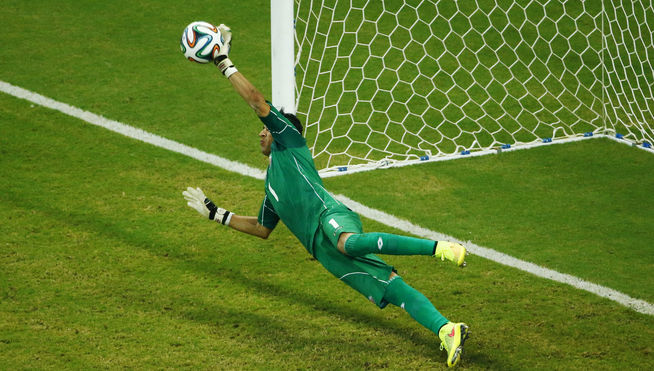
Last update 6 April, 2024 por Alberto Llopis
The goalkeeper always, since time immemorial and since football is football, it's the most unfair position on the court. The archer, during a match, can have outstanding saves saving his team, but if he makes a mistake in a play, just one, if it is a goal against it is already marked: no one will remember his saves but they will talk for many days (and in some cases, años, Incredibly) of his mistake, because he intervened in the marker.
How many goalkeepers have consecrated themselves in World Cups! From the Spanish Ricardo Zamora, Nicknamed "The Divine", in Italy '34, to Keilor Navas in Brazil 2014 (because in Uruguay 1930 the chronicles do not report any “goalkeeper” –as they were then called due to the English influence in the nascent football– who stood out above the rest).
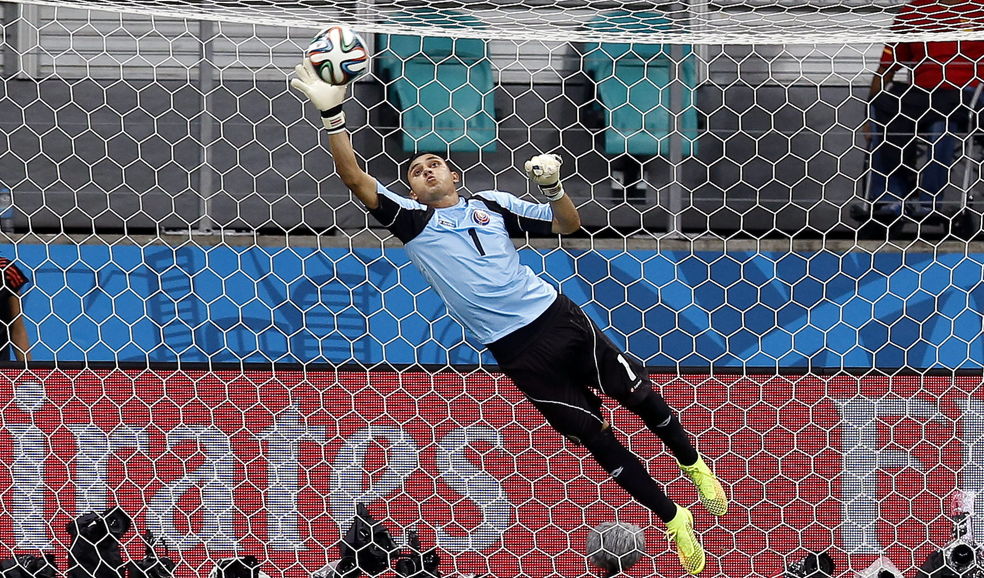
Eighty years of stories under the framework in the maximum competition of this sport. And in the last Cup, it is obvious that it should be called "of the goalkeepers", because unlike others where the stars have been strikers, half offensive or even defensive, this time the best performances, las más espectaculares, they were in charge of those who defend the goal and have the responsibility and obligation not to let the balls pass.
As the Mexican goalkeeper Guillermo Ochoa said (precisely one of the highlights in the recently concluded tournament), in an interview with the Spanish newspaper "As" last 23 de julio: “el World Cup relaunched the figure of goalkeepers”.
In our memory will be for a long time the sets of Tico Navas, of Aztec Ochoa, del gringo Tim Howard, Argentine Sergio Romero, Chilean Claudio Bravo, the Colombian David Ospina or, to a lesser extent, Belgian Thibaut Courtois and Algerian Rais Mbolhi, many of them decisive for their teams to play an outstanding role in the Cup and that made them worthy of “MVP” nominations ("most valuable Player") and attract the attention of the planet.
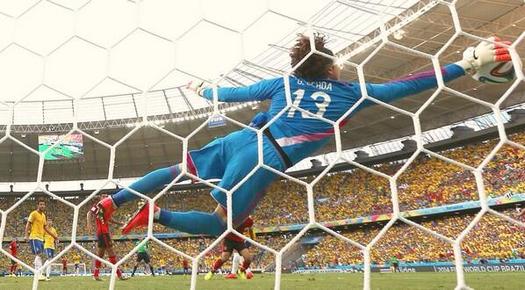
These archers shone so much, that the majority –in an interesting soccer merry-go-round– managed to place themselves in teams with higher expectations: Navas ended up at Real Madrid (he played for the modest Levante), Ochoa at Malaga (defended relegated French Ajaccio), Bravo signed with Barcelona (Royal Society era).
Además, Ospina from French Nice “flew” to English Arsenal, Romero finished in the Portuguese Benfica (your previous destination, el Mónaco, It was not a small thing ... but there he was a substitute), Courtois returned to Chelsea (was loaned 3 seasons in Diego Simeone's brilliant Atlético de Madrid).
Only one case was the antithesis of what is discussed here: the american howard (that with their 16 saved in the duel against Belgium in the round of 16 surpassed Ramón Quiroga's mark in 1978, when in Peru-Holland, that concluded 0-0, the South American goalkeeper prevented his rival from scoring in 13 oportunidades), and not because he has fallen in terms of illusions with his club, since he plays for Everton in the English Premier League, but because despite that memorable performance of his 1 de julio, the Stars and Stripes selection was eliminated from the competition.
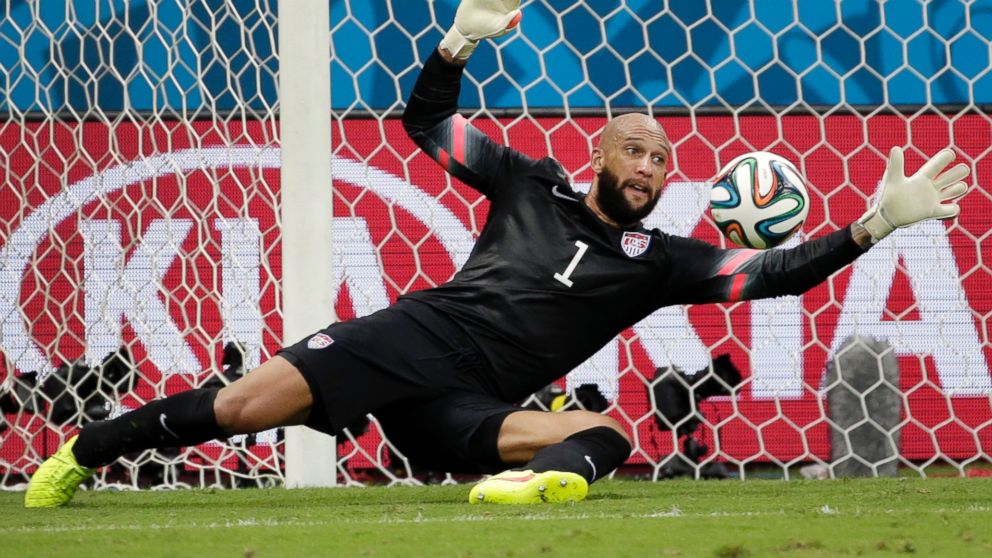
Ones more, otros menos, but undoubtedly Navas, Ochoa, Bravo, Ospina, Romero and Courtois climbed the world rankings and placed themselves "in the crosshairs" of football opinion. Como puede verse, the "latin power" predominated in the performance that this position, en general, had in the World Cup 2014 (without demeriting what was done by the great figure, another colombian, forward James Rodriguez), well 5 de los 6 goalkeepers who got the ovations for me, represented that part of the American continent.
Perhaps those who had the most difficulties before arriving in Brazil were Ochoa and Romero: the mexican came from a descent (not expected less painful) in France and the Argentine from a long substitution in that same league. To both, a sector of the press and fans of their respective countries questioned their ownership, despite its undeniable qualities guarding the 3 palos. With the passing of the Cup, it was confirmed that neither Paco Memo lost his faculties when descending with Ajaccio nor "Chiquito" forgot how to tackle balls on the bench in Monaco.
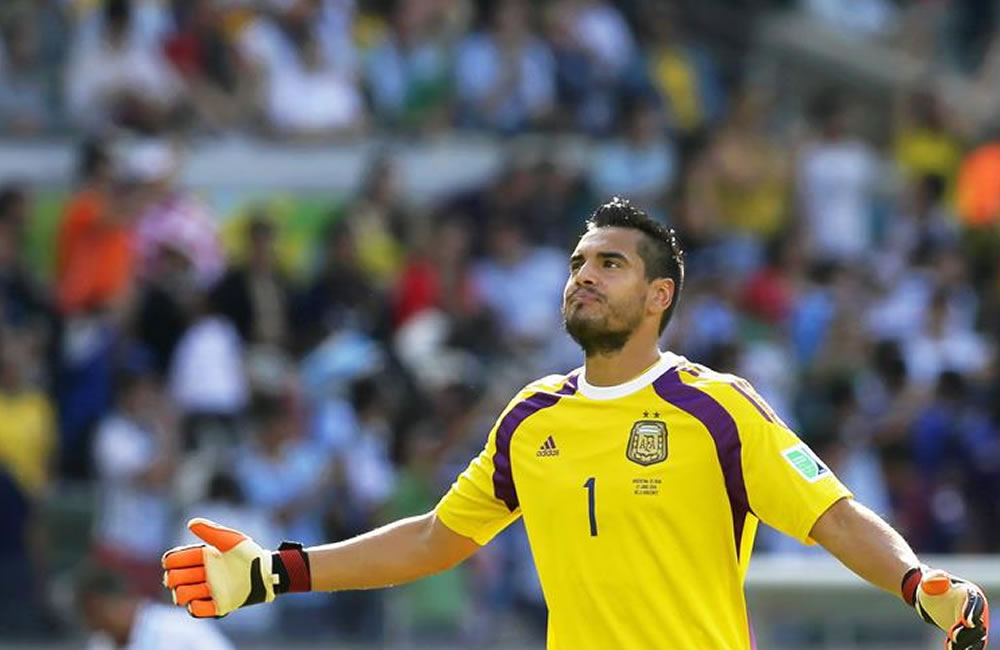
And concluded Brazil 2014, while his colleagues were placed in various clubs in Europe, Ochoa did not define his situation and his detractors (that in Mexico there are plenty, "thanks" to what the legendary former striker Hugo Sánchez called the "crabbing" of those who do not accept the success of a countryman) they yelled at the 4 winds that he would end up signing for another "second team" or would return to play in his country, what would undoubtedly have been mockingly celebrated as a victory by the "anti-memists".
But against the Aztec goalkeeper weighed the lack of community passport, because most European clubs prefer to "burn" their 3 quotas of foreigners -non-EU- in offensive players and not in rearguard positions. Hoy, Ochoa has the advantage of having been placed in a box of medium expectations, in which he can shine much more than in Ajaccio, and with the advantage that his 29 años, leap, past the 30 (the best age in a goalkeeper), to a big club and continue to write his own story for himself.
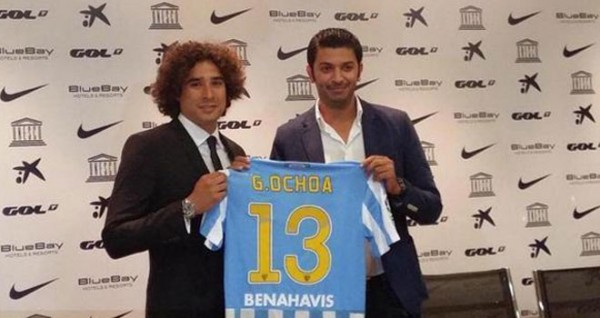
Por lo demás, unlike World Cups where the figures were offensive players (Fontaine, "Skin", Maradona, Platinum, Schillaci, Romario, Ronaldo, Zidane, etc.), the Brazilian 2014 It has to be described as "the one with the archers"... who brought out the "Latin power".

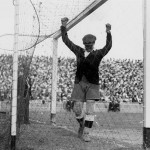
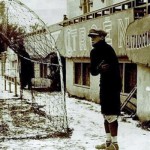



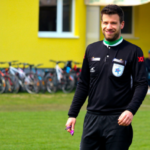
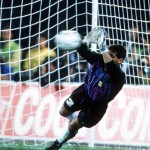

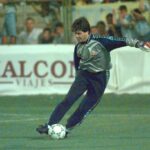
In one of the last paragraphs of my article I wrote: "As you can see, the "latin power" predominated in the performance that this position, en general, had in the World Cup 2014 (without demeriting what was done by the great figure, another colombian, forward James Rodriguez), well 5 de los 6 goalkeepers who got the ovations for me, they represented that part of the American continent.”. I was referring specifically to Navas (tico), Ochoa(Mexican), Bravo (chileno), Ospina (Colombian) and rosemary (Argentinian). Greetings
Of course Howard is North American and not Latino., I never expressed that in my text, I even remarked his nationality clearly.
Tim Howard no es latino…
Obviously Howard is not Latino, I specified that it is North American; and in a paragraph near the end of the article I wrote: “Como puede verse, the "latin power" predominated in the performance that this position, en general, had in the World Cup 2014 (without demeriting what was done by the great figure, another colombian, forward James Rodriguez), well 5 de los 6 goalkeepers who got the ovations for me, represented that part of the American continent”. I meant Navas (tico), Ochoa (Mexican), Bravo (chileno), Ospina (Colombian) and rosemary (Argentinian). Greetings.